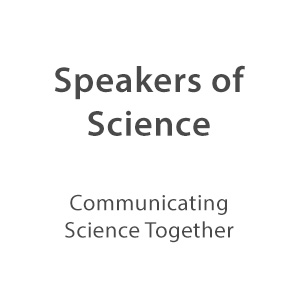Reads of the week 18 July 2014
Domesticated humans, scientific advisers, MOOCs and more.
We’re sorry for the radio silence over the last few weeks – instead of writing, we’ve been reading! Here are our favourite reads of the week 18 July 2014.
New June 2018 update on rattan conservatory furniture.
Running a blog takes a lot of work, and to get your voice(s) heard, you sometimes need to do a little extra to get to the top of the pile. Search Engine Optimisation (SEO), both friend and foe, is a set of tools that can help achieve this, although it is constantly changing and is almost impossible to keep track of how Google measures the credibility of your site. One of the many tricks is to link keywords in various parts of the webpage. For example, the title you give your blog post should also appear in the text, URL and meta description of that page, so that when someone types those keywords into the search bar, your’s has plenty of them in the page. Take note, CONTENT IS STILL KING: if you over-SEO and write poor content, you will be penalised. Now that you’ve had a VERY brief intro (you can read more about it on Moz’s awesome SEO beginners guide), a French food critic and blogger was penalised by the French small courts because her blog was too prominent on Google. The restaurant she had given a bad review claimed that her high rankings on Google was ruining it’s business. It’s a shame we don’t get more information about the case itself: were the comments really defamatory, or was it just opinion? Although this was only a small courts decision, it will be interesting to see how it turns out, and what traction this type of behaviour gets.
A few months back, or probably more, my partner and I had a “which came first” type of discussion. We were talking about cats, and whether big ones had evolved into little ones, or little ones had evolved into big ones (neither of us are evolutionary biologists, just interested parties. Not that we have a cat). the conversation started because we were wondering how they became domesticated. Low and behold, David Grimm has written a great post about it. He’s currently doing research for a book, and is finding that as we domesticated animals, animals also domesticated us.
And for something a little more chilling, Ethan Watters writes an incredible article about one anthropologists career trying to uncover organ trafficking and medical tourism mysteries. “A heart surgeon from Eastern Europe admitted his concern that medical tourism would encourage doctors from his country to harvest organs from brain-dead donors who were “not quite as dead as we might like them to be.” In these new practices, Scheper-Hughes began to understand, human organs and tissue generally moved from south to north, from the poor to the rich, and from brown-skinned to lighter-skinned people.”
This week, the UK cabinet underwent a reshuffle and saw the resignation of MP David Willets as minister for universities and science. His replacement, Greg Clark, will be overseeing universities, sciences AND cities. He will be one busy man. The Guardian profiles the incoming minister here. Earlier this summer, I was fortunate enough to hear David Willets speak at a function when he visited Ottawa, Canada. I can readily echo the sentiments written by many this past week characterizing Mr. Willets as an incredibly affable individual. I remember him speaking so proudly of the place of science and science advising in British parliament. Did you guys know you have a Chief Scientific Adviser in every department. EVERY. SINGLE. DEPARTMENT. Canada doesn’t even have one parliamentary scientific adviser. I am so jealous of you guys.
Speaking of science and its place in society, Imran Khan, the Chief Executive of the British Science Association has issued a new vision for science. Reading its uplifting and ambitious content makes me incredibly excited for what the BSA will achieve in the near future. Why do you guys get the coolest things?!
Let’s talk about massive open online course (MOOC). I have enrolled in a dozen, completed one and really loved my experience overall! There’s no pressure to complete anything. Often times, I end up downloading lectures for later and save them for a rainy day when I am bored. Unfortunately, not all is great in the land of MOOCs. Visually, structurally and instructional-ly lacking courses have the unique ability to turn away interested learners, thus hurting the reputation of the university providing the course and the MOOC platform (such as Coursera). Hopefully, universities will acknowledge and address this problem soon. Looks like there will be a growing (albeit small) market for teaching professors how to deliver great online presentations, any scicomm’ers interested?
